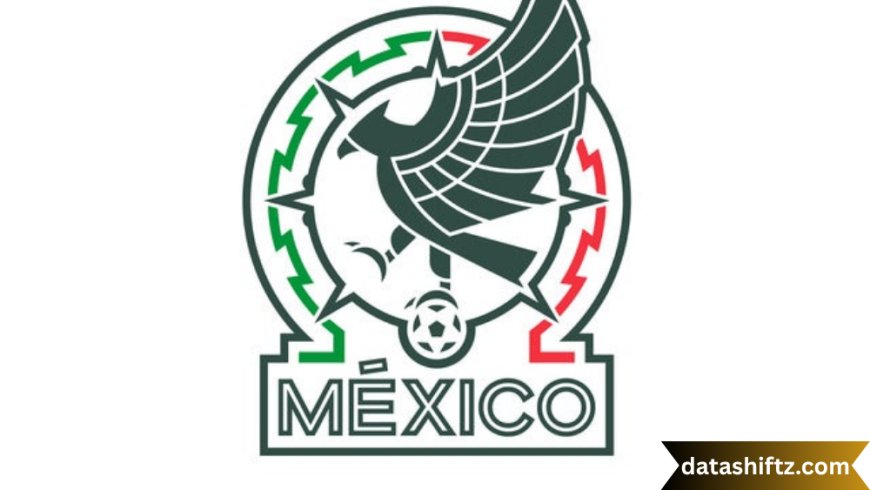Mexico FC: Legacy, Passion, and the Heartbeat of Mexican Football

Introduction
Football is more than just a sport in Mexico—it's a cultural phenomenon, a national identity, and a source of immense pride. Among the many institutions that embody this passion, Mexico FC, also referred to by some as a symbolic representation of the country's footballing essence, stands as a powerful concept uniting fans, history, and aspiration. While there isn’t an official club named “Mexico FC,” the term often symbolizes the Mexican national football team or reflects the collective ambition and talent of Mexican football clubs, especially in Liga MX, the nation’s top-tier league.
This article explores the evolution of Mexican football through the lens of Mexico FC, shedding light on its historical roots, key players, national team achievements, club-level contributions, and its cultural significance.
The Rise of Football in Mexico
Historical Context of Mexican Football
Football in Mexico dates back to the early 1900s when British miners and engineers introduced the sport. By the 1920s, organized football competitions began emerging, and the Mexican Football Federation (FMF) was established in 1927. Over time, football became embedded in Mexican society, culminating in the foundation of Liga MX in 1943.
Milestones in Mexico’s Football History
| Year | Event | Significance |
|---|---|---|
| 1923 | First international match vs. Guatemala | Initiated Mexico’s journey on the global stage |
| 1970 | Mexico hosted its first FIFA World Cup | Boosted national infrastructure and global reputation |
| 1986 | Second World Cup hosted | Maradona's Hand of God and the rise of Mexico’s team |
| 1999 | Won FIFA Confederations Cup | First major FIFA tournament win |
| 2012 | Olympic gold medal in football | Defeated Brazil; historic achievement for the nation |
Mexico FC as the National Team Identity
Though there’s no registered club named Mexico FC, the Mexico national football team, affectionately known as "El Tri" (The Tricolor), often fills this symbolic role. Representing the country in FIFA tournaments, CONCACAF events, and international friendlies, El Tri has carved out a reputation as one of the strongest teams in the Americas.
Mexico National Team Achievements
| Competition | Titles Won | Notable Wins |
|---|---|---|
| CONCACAF Gold Cup | 12 | Most successful team in the region |
| FIFA Confederations Cup | 1 (1999) | Beat Brazil 4-3 in the final |
| Olympic Gold Medal | 1 (2012) | Defeated Brazil 2-1 in the final |
| FIFA World Cup Appearances | 17 | Regular participant since 1930 |
| Copa América Best Finish | Runner-up (1993, 2001) | Invited guest with strong performance |
Legendary Mexican Footballers
-
Hugo Sánchez – Real Madrid legend, five-time La Liga top scorer.
-
Rafael Márquez – Former Barcelona captain, pivotal in defense.
-
Cuauhtémoc Blanco – Iconic playmaker known for flair and creativity.
-
Javier “Chicharito” Hernández – Mexico’s all-time top scorer.
-
Andrés Guardado – Veteran midfielder with over 175 international caps.
-
Guillermo Ochoa – Star goalkeeper with memorable World Cup performances.
-
Carlos Vela – La Liga and MLS standout with international flair.
-
Héctor Herrera – Key midfield engine in both club and national team.
-
Raúl Jiménez – Premier League striker known for aerial prowess.
-
Luis Hernández “El Matador” – Scored four goals in 1998 World Cup.
Liga MX: The Foundation of Mexico FC
Club Football’s Contribution to National Glory
While the national team garners global attention, Liga MX, Mexico’s premier football league, is the beating heart of domestic football. With clubs like Club América, Chivas Guadalajara, Cruz Azul, and Tigres UANL, Liga MX is known for its competitive nature, passionate fanbases, and development of local talent.
Top Clubs Representing Mexico FC Spirit
| Club | City | Championships | Notable Contributions to El Tri |
|---|---|---|---|
| Club América | Mexico City | 13 | Developed Guillermo Ochoa, Cuauhtémoc Blanco |
| Chivas Guadalajara | Guadalajara | 12 | Only fields Mexican players |
| Cruz Azul | Mexico City | 9 | Multiple international call-ups |
| Tigres UANL | Monterrey | 8 | Known for international recruitment |
| Pumas UNAM | Mexico City | 7 | Produced Hugo Sánchez |
Cultural Impact of Football in Mexico
Football in Mexico transcends the pitch. It permeates daily life, family traditions, politics, and even art. During World Cups, cities come alive with green jerseys, face paint, and watch parties in homes, streets, and public squares. The chant “¡Sí se puede!” echoes nationwide whenever El Tri faces global giants.
Football is also a source of unity in difficult times. In the aftermath of natural disasters or political unrest, the national team and Liga MX clubs often lead relief efforts, organizing fundraising matches and community events.
Reasons Why Football Is Mexico’s Most Beloved Sport
-
National Unity: Brings together people across age, class, and region.
-
Strong Youth Development: Local academies nurture future stars.
-
Vibrant Stadium Atmosphere: Matches are celebrations filled with chants, colors, and traditions.
-
Frequent International Success: Regular World Cup appearances and regional dominance.
-
Cultural Expression: Football influences music, fashion, art, and language.
-
Family Tradition: Passed down through generations.
-
Media Coverage: Football dominates national TV and radio.
-
Iconic Rivalries: Matches like América vs Chivas captivate the nation.
Mexico FC and the Global Stage
Mexico's symbolic club, Mexico FC, shines brightly in international competitions. Whether it’s hosting the World Cup or defeating world champions in friendly matches, the country has proven time and again that it belongs among football’s elite. In 2026, Mexico will co-host the FIFA World Cup with the USA and Canada, making it the only country to host the tournament three times—a record achievement.
Challenges and Opportunities Ahead
Despite its achievements, Mexican football faces challenges:
-
Exporting Talent: Not enough Mexican players compete in top European leagues.
-
Youth Development: More investment is needed in grassroots infrastructure.
-
Corruption Allegations: Governance issues have tainted Liga MX’s image at times.
-
Women’s Football: Liga MX Femenil has improved, but needs more support and visibility.
Yet, the opportunities outweigh the challenges. With a rich talent pool, an enthusiastic fanbase, and global recognition, Mexico FC is poised for an exciting future.
Conclusion
Though "Mexico FC" may not exist as a standalone club, it represents a powerful symbol of national pride, cultural identity, and footballing excellence. From the roaring stadiums of Liga MX to the grand stages of the World Cup, Mexican football continues to grow, inspire, and unite millions. It’s more than just a game in Mexico—it’s a way of life.
With history behind it and the future ahead, Mexico FC is not just a team—it is every player, every fan, every goal, and every moment that defines the beautiful game south of the Rio Grande.






























